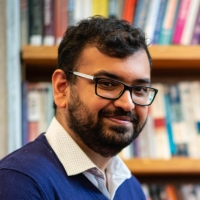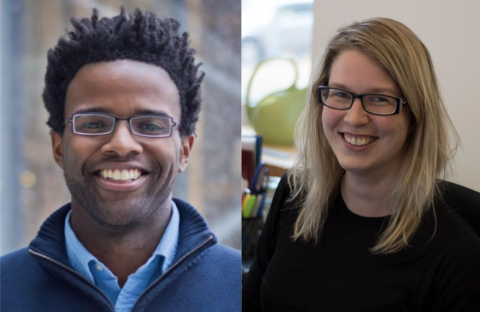Three MIT Computer Science and Artificial Intelligence Laboratory (CSAIL) members are among 126 early-career researchers honored with 2024 Sloan Research Fellowships by the Alfred P. Sloan Foundation. Representing the departments of Chemistry, Electrical Engineering and Computer Science, and Physics, and the MIT Sloan School of Management, the awardees will receive a two-year, $75,000 fellowship to advance their research.
“Sloan Research Fellowships are extraordinarily competitive awards involving the nominations of the most inventive and impactful early-career scientists across the U.S. and Canada,” says Adam F. Falk, president of the Alfred P. Sloan Foundation. “We look forward to seeing how fellows take leading roles shaping the research agenda within their respective fields.”
The three researchers are amidst eight MIT faculty members named 2024 Sloan Research Fellows:
Jacob Andreas is an associate professor in the Department of Electrical Engineering and Computer Science (EECS) as well as the Computer Science and Artificial Intelligence Laboratory (CSAIL). His research aims to build intelligent systems that can communicate effectively using language and learn from human guidance. Jacob has been named a Kavli Fellow by the National Academy of Sciences, and has received the NSF CAREER award, MIT's Junior Bose and Kolokotrones teaching awards, and paper awards at ACL, ICML and NAACL.
Adam Belay, Jamieson Career Development Associate Professor of EECS in CSAIL, focuses on operating systems and networking, specifically developing practical and efficient methods for microsecond-scale distributed computing, which has many applications pertaining to resource management in data centers. His operating system, Caladan, reallocates server resources on a microsecond scale, resulting in high CPU utilization with low tail latency. Additionally, Belay has contributed to load balancing, and Application-Integrated Far Memory in OS designs.
Arvind Satyanarayan in an assistant professor of computer science and leader of the CSAIL Visualization Group. Satyanarayan uses interactive data visualization as a petri dish to study intelligence augmentation, asking how computational representations and software systems help amplify our cognition and creativity while respecting our agency. His work has been recognized with an NSF CAREER award, best paper awards at academic venues such as ACM CHI and IEEE VIS, and honorable mentions among practitioners including Kantar’s Information is Beautiful Awards. Systems he helped develop are widely used in industry, on Wikipedia, and in the Jupyter/Python data science communities.





